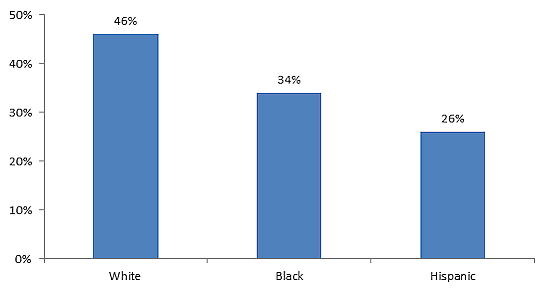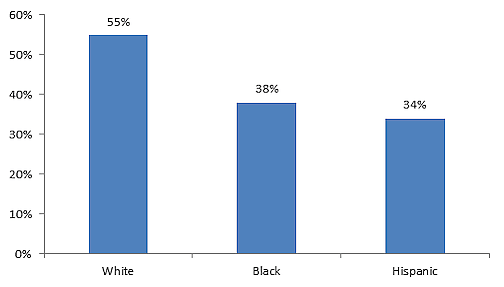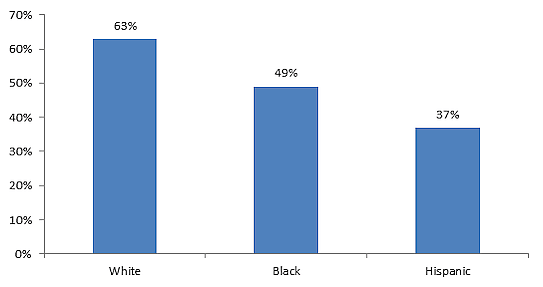Whenever I write about Hispanic immigration to the United States, I am greeted with some variation of the “they’re all socialists” line. These commenters typically point to the fact that a majority of Hispanics vote for Democrats. Yet as Alex Nowrasteh has written, the Republican Party’s antagonism toward Hispanics plays an important role in that outcome. The reality is that Hispanics disproportionately backed the libertarian presidential candidate this election and, as I have described before, are America’s most libertarian major ethnic group on a variety of specific issues. Now, thanks to Donald Trump’s recent actions, we have more evidence for this fact.
The Economist magazine teamed up with the survey outfit YouGov to ask Americans how they felt about trade, tariffs, subsidies, and free markets following President-elect Trump’s recent decision to intervene to prevent Carrier from relocating production to Mexico. Support for the deal should be a telling indicator of a person’s views on capitalism, as it clearly shows contempt for the market system and free trade. As Vice President-elect Mike Pence told The New York Times, he supported the deal because “the free market has been sorting it out and America’s been losing.”
The first question in the poll on the issue asked respondents whether they agreed with Pence’s statement, but did not reveal its origin to avoid allowing partisanship to impact the responses. Figure 1 provides the breakdown of the responses by ethnicity. As it shows, Hispanics were the least likely to agree with Pence’s statement—a full twenty percentage points less likely. In case you think that this result might still be pure partisanship, barely half of Hispanics had even heard anything about the Carrier deal, let alone the Pence remark.
Figure 1: Share agreeing with the statement that “the free market has been sorting [the economy] out and America’s been losing.”
Source: Economist–YouGov
While this certainly implies that Hispanics are also the least likely to agree that the free market has been leading to a worsening economy, perhaps it could be argued that Pence’s statement is unclear. I disagree with that. I think it would be obvious to respondents that they are supposed to connect the free market with a poor economy. Fortunately, the survey asked other questions that support the idea that Hispanics correctly interpreted Pence’s comment as being anti-free market.
The survey followed up by asking respondents whether they supported “special tax breaks to companies in order to keep jobs in those communities.” Hispanics were the least likely to support such tax breaks. Only 1 in 3 Hispanics considered such tax breaks legitimate. Again, as Figure 2 shows, this is 19 percentage points less than whites.
Figure 2: Share supporting “special tax breaks to companies in order to keep jobs in those communities”
Source: Economist–YouGov
Finally, the survey asked whether the respondents favored “stiff tariffs or other taxes on U.S. companies that relocate jobs from the U.S. to foreign countries.” On this question, the difference in opinion is the most dramatic. Only 37 percent of Hispanics want to punish companies for these business decisions. This is an astounding 26 percentage points less than whites, who overwhelmingly favored government interference.
Figure 3: Share supporting stiff tariffs or other taxes on U.S. companies that relocate jobs from the U.S. to foreign countries
Source: Economist–YouGov
This result corresponds with Hispanics’ strongly pro-free trade sentiments, as expressed in polls by the Pew Research Center. It appears that their views on free trade will hold under both the Democrat and Republican administrations. On the Carrier deal itself, Hispanics who knew about the deal were overwhelmingly not supportive, but a plurality had no opinion as they had not heard enough about it.
These three questions address a broad understanding of the government’s role in the economy. The first focuses on a general sentiment about the current market economy in the United States, the second on corporate welfare and government intervention, and the last on punitive taxation, free trade, and government intervention. Overall, they show that Hispanics are not “socialists”—indeed, on these questions, they are much less supportive of a planned economy than white Americans.



